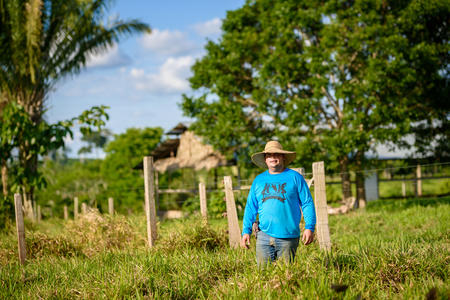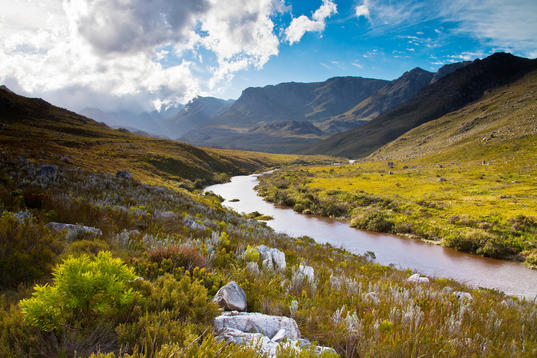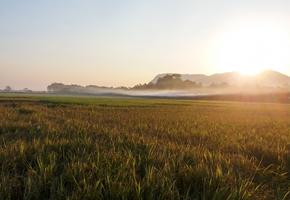Climate change and biodiversity loss: connected crises
Nature underpins all the systems on which human life depends, from food systems to clean air and fresh water. It's also inextricably linked with the climate, which is making it increasingly difficult now to talk about climate change without also highlighting the depletion of nature.
Unless we address biodiversity loss then it will be impossible to address climate change because the two crises interact. While changes to the climate can make species survival hard or impossible, so too changes in the natural world are making climate change even worse.
Habitats also act as carbon sinks
In Great Britain one in six species are at risk of being lost and most of the habitats they rely on are in poor condition. Some of these habitats, like peatlands, trap carbon and prevent it being released into the atmosphere. When they are damaged, this carbon becomes part of the excessive concentration of carbon dioxide that is making the world's climate more unpredictable and weather events more extreme.
Damage to habitats, particularly on a large scale, can have impacts on local and regional climate and weather miles away. Deforestation in the Amazon rainforest leads to fires, which accelerates the loss of carbon-storing trees. In 2019, 392 million tonnes of carbon dioxide entered the atmosphere from this situation alone and there is now widespread concern the rainforest is reaching a tipping point from which it won't be able to recover.
One of our projects at Climate Group has been looking at how to reverse the damage of cattle ranching in the Peruvian Amazon and expand sustainable farming. Now in its third phase, smallholder farmers have been implementing regenerative practices that stop ranches becoming barren wastelands and bring nature back. This in turn has positive effects on the soil and reverses the impacts of previous deforestation.

Developing resilience to climate change
With the effects of climate change becoming more visible, there is now an increasing focus on adaptation and resilience. While cutting emissions remains vital, some changes to our climate are now locked in and collectively we need to find new ways to cope.
It's well known, for example, that forests regulate local and regional weather systems and help to limit extreme heat. Only last month it was reported that reforestation in the east of the US is reducing the effects of global heating: bucking the worrying trends seen elsewhere. If geography-appropriate tree planting were adopted in densely-populated cities, it could have a dramatic impact on the phenomenon of heat islands and save thousands of lives.
Through the Under2 Coalition's Future Fund we support states and regions in the Global South on projects to help them mitigate and adapt to climate change. In 2022, the Fund helped North Bank Region in Gambia to consult with communities and draw up plans for responding to changing weather patterns based on local needs and resources. Meanwhile in Cross River State, Nigeria, expertise was shared on managing mangroves more sustainably to store carbon and continue acting as a barrier to the impacts of extreme weather.

Nature-based solutions to the climate crisis
Up to a third of solutions to the climate crisis relate to nature and these solutions can address both mitigation and adaptation at the same time. This isn't to say they're a silver bullet but there is a clear and urgent need to factor nature into how we react to climate change.
Last year, state governments across Australia shared nature-based policy solutions they are adopting to support their climate goals. This topic was picked as a priority by the Net Zero Futures Policy Forum because of a need to align nature and climate goals at subnational level. Each government involved published examples of how they are reporting on nature in their state and of their pledges and initiatives to store carbon and protect habitats.
Preventing a world without nature
Today on World Wildlife Day we are standing alongside WWF to call for urgent action to address the nature crisis. Global wildlife population sizes have dropped by an average of 69% since 1970 and if this continues many populations will become unsustainable. Governments, businesses and individuals all need to act now. Because a world without nature will also be a world without a stable climate - and increasingly uninhabitable.


